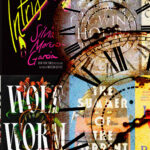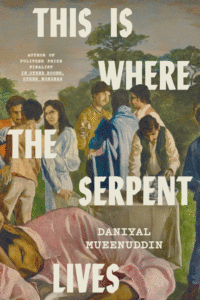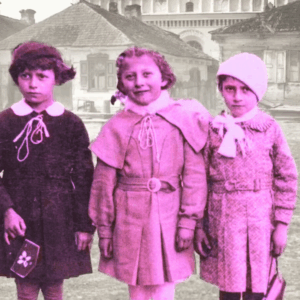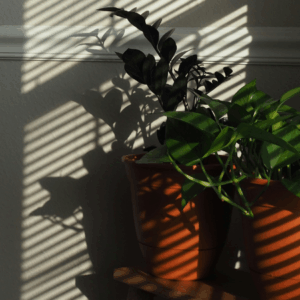Translated by Hilary Kaplan.
M.A. (Michelangelo Antonioni)
it’s like the dangerous thread
of things whispered on leaving the room.
before filming
everything observed the position of the sun
that afternoon with mediterranean houses and imagined
the sequence of dialogues
in layers. like a language in curves
or holding still in the dark. the two women
in front of the lens never saw each other: they reversed
position (the one in white
smiled from under the seaweed near the ocean’s floor)
then framed the displacement
to hong kong on a delayed
flight. how to continue trying an inverse
angle if everything worsens
as the days go on? how to follow the rotating
schedule they acquire after
years of scarcity?
sat down on one of the benches
facing the women
(something painful to say
but who knows what,
perhaps the general
weight of things)
where does the name
patagonia come from? and penguins? how
to detail the sequence
of images? and how
swim so close
to the rocks?
* * * *
a woman saved from drowning
after Guillermo Cabrera Infante
noise of rain,
an electric lamp
lights a single window
above the devastated city. dressed in white,
on the edge of the bed, she’d waited months to open the notebook
she found in a cafe. “when do you think
the rain will stop?”
(but wanted to ask what
are you thinking? wanted to ask how long will it last?
wanted to ask something else)
in the grey room,
outlined objects
lose color one by one and change
places as you wait, the streetlight
filtered through the curtains forms
a square, glowing radioactive (could it be a wet dream
that makes me mix up the days of the week?)
“we need to go” was the last thing
she said, holding her raincoat
and a lifeboat.
* * * *
the girl from belfast alphabetizes at your feet
TRANSLATOR’S NOTE
In this poem, the main character from Joseph Brodsky’s
“Belfast Tune” organizes lines from poet Ana Cristina César’s
1982 volume, A teus pés (At Your Feet), in alphabetical order.
The poem was written in memory of César on the 25th
anniversary of her death.
98 spins around the park and she falls
in circles upon her own weight
98 times she said:
one could get the impression or not
of something definitive. like the girl from belfast,
her memories folded like a parachute
inside the fabric electrified by static
while she spoke she descended
the side stairs slicing the clatter
of the orchestra. the bicycle wheel
loops like music reducing her
reflexes to dust in the air and six hours standing
at the drain, one could get the impression or not, seated at the edge of
the room. she looks from afar as the car
passes by, goes out at night on the trails
when everything is vengeance
talks about bridges while crossing the tunnels
of the city and puts at your feet
in alphabetical order
camera sweeping the surface
cheat consoled
correspondence
drinking tea, nearly to the brim
evening surrounds the city
hope
intimacy was theater
. . .
i think you’re lying
open your mouth, beloved
opened the curtain
pain
the voice unrecorded on the mountains
one could get the impression or not it was her voice in mountain view
at a speed of 1 km/hour or a thousand. before
returning to ireland she had already begun to forget. she understands
that only after the security glass crumbled
against her head, only a few seconds till her head
against the glass, but it was just
part of the route, no way to count the nights or tracks
she would travel.
“extracting the audio from a frozen
image” was the label she fixed to the walls
to learn to reach the right place at the right time
in the background the voice through the opening
to arrange this book:
mouthwatering
now a bit emotional
now i’m a professional
now it’s your turn
now the wrong way
now we’re in motion
pricks of a needle
that’s enough now
water
or vertigo up high. you could wake thirty years
later with the image even more vivid
when the room is blind
autobiography. no, biography
blue I leave the keys loose on the terrace
blue that does not frighten me
crosses the bridge
crosses the endless bridge
crosses various city tunnels
I’m letting you know I’m becoming an airplane
letters
letters, when they arrived
magnifying glasses give up
wings beating
women and children
This piece first appeared in print as part of PEN America’s Glossolalia: Women Writing Brazil, now available in bookstores or online at www.glossolaliamag.org PEN America’s translation journal. Glossolalia advocates for writers with limited access to the global reading community.
Marília Garcia
Marília Garcia is a poet, translator and editor born in Rio de Janeiro in 1979. She is the author of 20 poemas para o seu walkman (2007), engano geográfico (2012), um teste de resistores (2014), and Paris não tem centro (2015). She won the Icatu Arts Prize in 2015. Marília’s new poems are about flying machines. She runs the poetry press LunaPARQUE Edições.




















